Why I'm excited about Facebook's first video game console
For once in my adult life, I'm actually excited about something Facebook is doing.
When Facebook purchased Oculus many moons ago, I was concerned. Facebook didn't have a good reputation at the time and that reputation is even worse now. But then the Oculus Quest came along, and all my doubts and fears about what Facebook has been doing with Oculus suddenly subsided. As someone who deleted their Facebook account years ago and never looked back, it's a bit odd to say that I'm actually excited about something Facebook has made.
So why the sudden change of heart? Historical proof. Since the Facebook acquisition of Oculus in 2014, Oculus has been taken from a literal Kickstarter project to a force to be reckoned with. Over the years, Oculus Studios has grown from a group of developers that created intriguing short films and experiences to a studio that's developing blockbuster AAA content.
The timing couldn't be better for standalone VR to take off and go mainstream.
The recent acquisition of Beat Games, developers of the most successful VR game ever (Beat Saber), proves that they're willing to continue to invest in building a must-have library of games. They're also attracting the attention of a number of compelling, proven developers.
It's also now the only company that has been able to launch a successful standalone VR headset, the implications of which are only now being felt throughout the industry. Standalone VR isn't a pretty term. It's not catchy and it's not going to get anyone excited. Instead, Facebook needs to start pitching the Oculus Quest as what it really is: a virtual reality video game console.
The timing couldn't be any better. The success of the Nintendo Switch proves that dedicated mobile gaming isn't going anywhere, and it isn't being replaced by cheap touch games on smartphones. While those other markets are thriving, gamers still want an experience that's not watered down in any way while still not being willing to sacrifice mobility or accessibility. And that is exactly why the Oculus Quest is what VR needed.
Built on a mobile foundation
When Oculus announced the Quest in Fall 2018, many scoffed at the idea of the Quest being built on a Snapdragon 835 mobile chipset. After all, this was the same chipset that powered mobile phones in Spring 2017 and by the time it launched would be two years old. Given the unparalleled step-ups in processing power we've seen from mobile chipsets over the years, a two-year-old mobile chipset powering a sophisticated motion-tracked room scale VR experience seemed beyond preposterous, it seemed flat-out impossible.
But the developers at Oculus, lead by none other than industry coding magician John Carmack (of Wolfenstein, Doom, and Quake fame), have done exactly this. They've achieved the impossible. They've not only created a working VR experience on a mobile chipset that moves and feels as good as PC-powered VR, but one that doesn't even feel like it has to sacrifice all that much in the visual department to achieve it.
Just like any console experience, graphics matter very little. This is proven every console generation as the hardware seems to last longer and longer, yet games continue to pour out as more and more consumers adopt the hardware. Nintendo is a perfect example of a company that regularly creates a console experience based on a specific experience and worries very little about the end result of the graphics, yet they're successful more often than not.
The visuals won't "wow" you the way a $2,000 PC with a higher resolution VR headset can, but that's the beauty of it: it doesn't need to. I've let several dozen people play games on my Oculus Quest and the end result is always the same; they're blown away by the immersive nature of VR. The graphics never even get mentioned. It's not even a blip on the radar for folks, and I've had several people ask if my PC was actually powering the experience. When I told them no, their jaws dropped.
Support is growing
Just as Sony and Microsoft built their cult-following by acquiring development studios and turning them into "first-party" in-house development powerhouses, Facebook is working on building their new video game empire much in the same way. As I've already talked about, the recent acquisition of Beat Games was met by a stunning quote that only provides further evidence of Facebook's intentions. When asked whether Facebook plans to acquire other studios, this was the answer:
We are thrilled to have Beat Games join our team. This is just the beginning.
There are several reasons for the sudden acceleration in Facebook's thinking and aggressive change of pace. First up, the sales of the Oculus Quest. VR, thus far in its commercial availability, has been fairly niche. Estimates show that somewhere in the realm of 20 million VR headsets have been sold since the Oculus Rift, HTC Vive, and PlayStation VR debuted three years ago.
These numbers also include the less capable Gear VR and Oculus Go headsets, all of which show a good start but nothing mind-blowing. After all, Apple sold 30 million iPhones in the first three years combined. While you can never compare any market directly and hope to make apples-to-apples comparisons, there are some pretty simple parallels. Neither the smartphone or VR markets were new when these products came out, yet they both changed the paradigms of how people saw products in each category.
Since its debut in May, the Oculus Quest has regularly sold out and seems to account for an already substantial portion of the VR market as a whole. In fact, as I write this, the Oculus Quest is sold out at every major retailer online and in-store leading up to Christmas. That's a really big deal, and it shows incredible growth for an industry that looked pretty stagnant even just a year ago.
As a result, developers have flocked to the platform in numbers we've never seen before. As of July when the annual XRDC AR/VR report came out, the 2-month-old Oculus Quest had as many games in development for it as the 3-year-old HTC Vive (24 percent of the market). That's utterly amazing.
The third point is simply a will to survive. Insomniac Studios, developer of several high-profile Oculus Studio games including the recently-released Stormland, was recently acquired by Sony. Given the fact that Insomniac Games develops far more than just VR titles, and Sony is invested in both "pancake" and VR gaming, it made plenty of sense for Sony to finally bring Insomniac into the fold. The result? Facebook realized it could easily lose its best developers if it didn't do something fast, and thus, here we are.
Aren't you at all worried?
In the short? Yes. While Facebook has shown little reason to worry up until now, recent actions point toward some obvious issues people are going to have going forward. While Oculus and Facebook have, historically, been separate entities, Facebook is increasingly leveraging the world's biggest social network (Facebook) to more easily connect people through Oculus.
Let's be fair to Facebook though. If you were a company that was building out social features on a gaming platform that has no semblance of any kind of social features at all, wouldn't you utilize the technology that you've already built and pioneered? Of course you would. Facebook integration with Oculus through the social side of things isn't nefarious in and of itself, it's smart and, quite frankly, only makes sense.
The issue crops up when dealing with those nagging privacy policies that always seem to get updated without any real recourse for users. Facebook's latest privacy policy update coincides with the new chat features that were added to the Oculus platform and, appropriately, require a Facebook account in order to use. Given that most people have Facebook, this removes the annoying step of passing usernames to folks you've already friended.
But let's be transparent about everything from the company; not all is hunky-dory in Facebook land. Scandals have erupted practically every week for the last few years, and trust in the company is at an all-time low (a figure that was already low to begin with). No matter what you think of Facebook, the company has a lot of ground to make up in the trust department and it's going to likely take years of rebuilding trust before users feel good about using Facebook again.
The first VR console
There are a lot of ways to describe the Oculus Quest, but only one of them matters. The Oculus Quest is the first VR console on the market. Heck, it'll even operate as a PC-powered Oculus Rift if you have the right kind of USB Type-C cable through Oculus Link, making it double worth the investment if you've got a gaming PC.
While the PS4, obviously, offers a VR addition, this secondary accessory does as well as any secondary accessory ever could on a video game console. Like the Wii Fit Balance Board, Donkey Konga Bongos, or even The Menacer lightgun for the Sega Genesis, an add-on accessory will never be bought by everyone owning the original base system.
The Oculus Quest is the perfect starter VR headset, but what comes next from Facebook will likely be the first VR gaming console.
Much like the Wii introduced the world to motion controls in a meaningful way by including motion controllers with every single Wii sold, Facebook is introducing virtual reality to the world in the right way; by offering it in a single, ready-to-use package that requires no configuration and no additional gear or hardware to use. All you need is some physical space and a charged battery.
Up until now, the only way to experience VR in an easy, hassle-free way was to buy a PS4 and a PlayStation VR, or to get something like an Oculus Go. The PS VR, while an amazing way to experience VR without spending a lot of money, is restrictive in its movement, owing to the fact that a single camera keeps track of everything. The Oculus Go was even easier to use and cost even less money, but there are no controllers for the experience and the headset only tracks 3 degrees of movement.
The Oculus Quest marks the first product to market that doesn't feel like it has any real shortcomings and doesn't hinder the experience in any meaningful way. Sure, the graphics could be better, and the battery life could probably last a bit longer. Maybe you could even add some headphones to the experience instead of the built-in speakers.
But none of these points of improvement ever feel like they impede the experience. In fact, most of the time the device feels like pure magic, and evokes the sensation of wonder that many of us had the first time we experienced 3D gaming on a PlayStation or Nintendo 64 25 years ago.
With the most positive aspects of Facebook's financial backing behind it and the drive to create an experience that can't be found anywhere else, it's clear that the Oculus Quest is the product VR has needed for years.
VR without the hassle
Oculus Quest
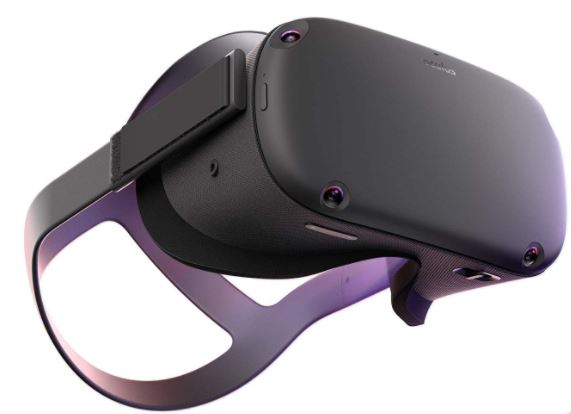
From $399 at Amazon $399 at Walmart
The easiest way to VR
Looking to jump into VR? This Oculus Quest is the best way to do it because it doesn't require a PC, console, smartphone, or some other way of powering the experience. No cords. No setup. No hassles. It's the first VR console, and it's worth your money.
from Android Central - Android Forums, News, Reviews, Help and Android Wallpapers https://ift.tt/2s2cRK7
via IFTTT
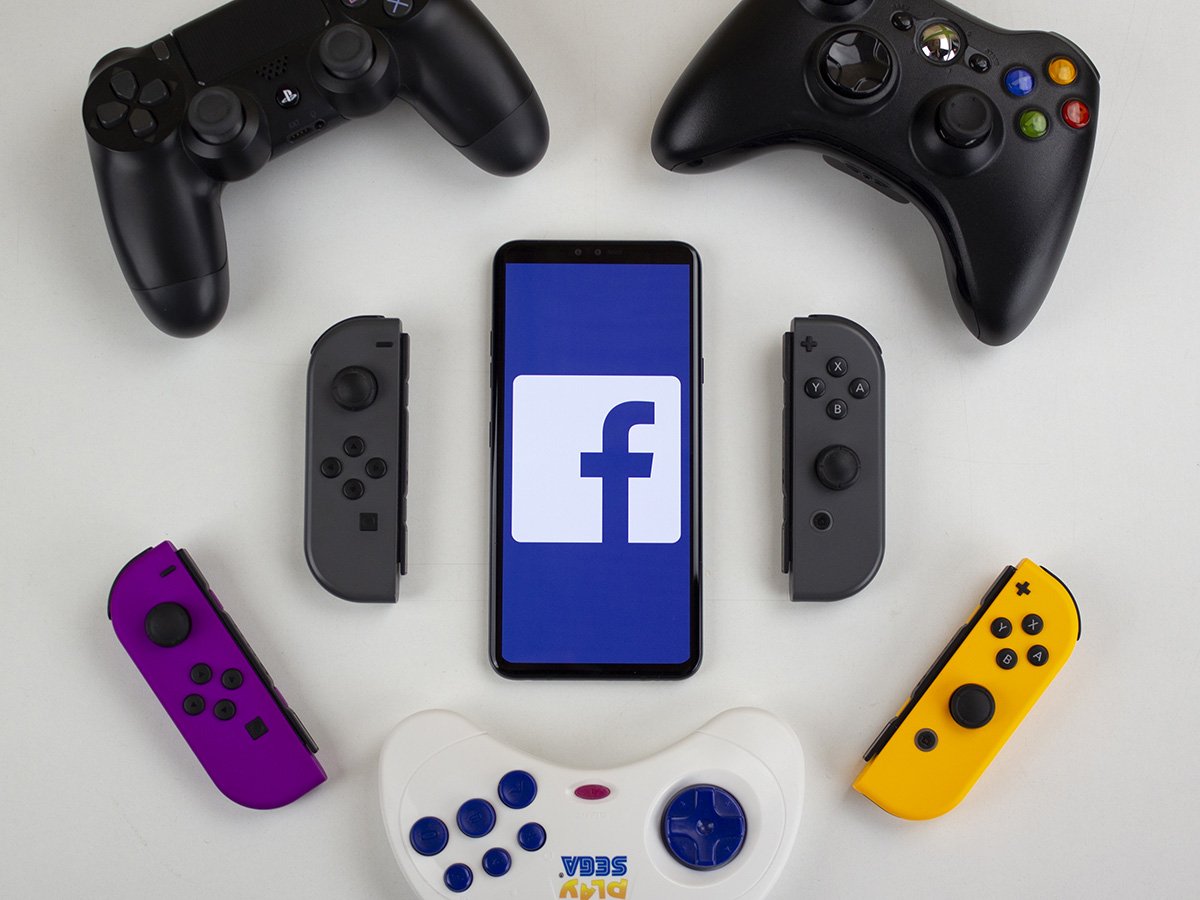
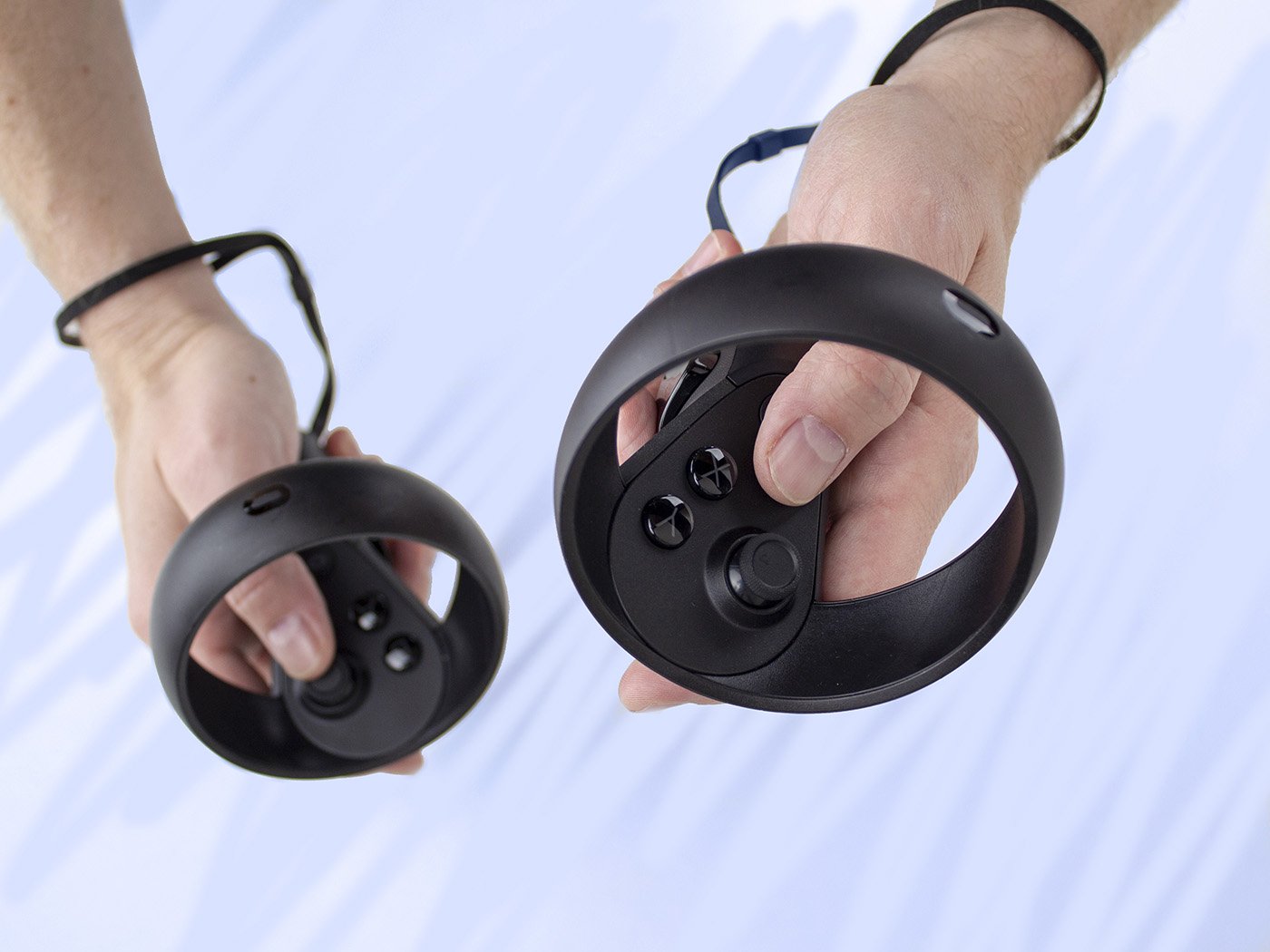
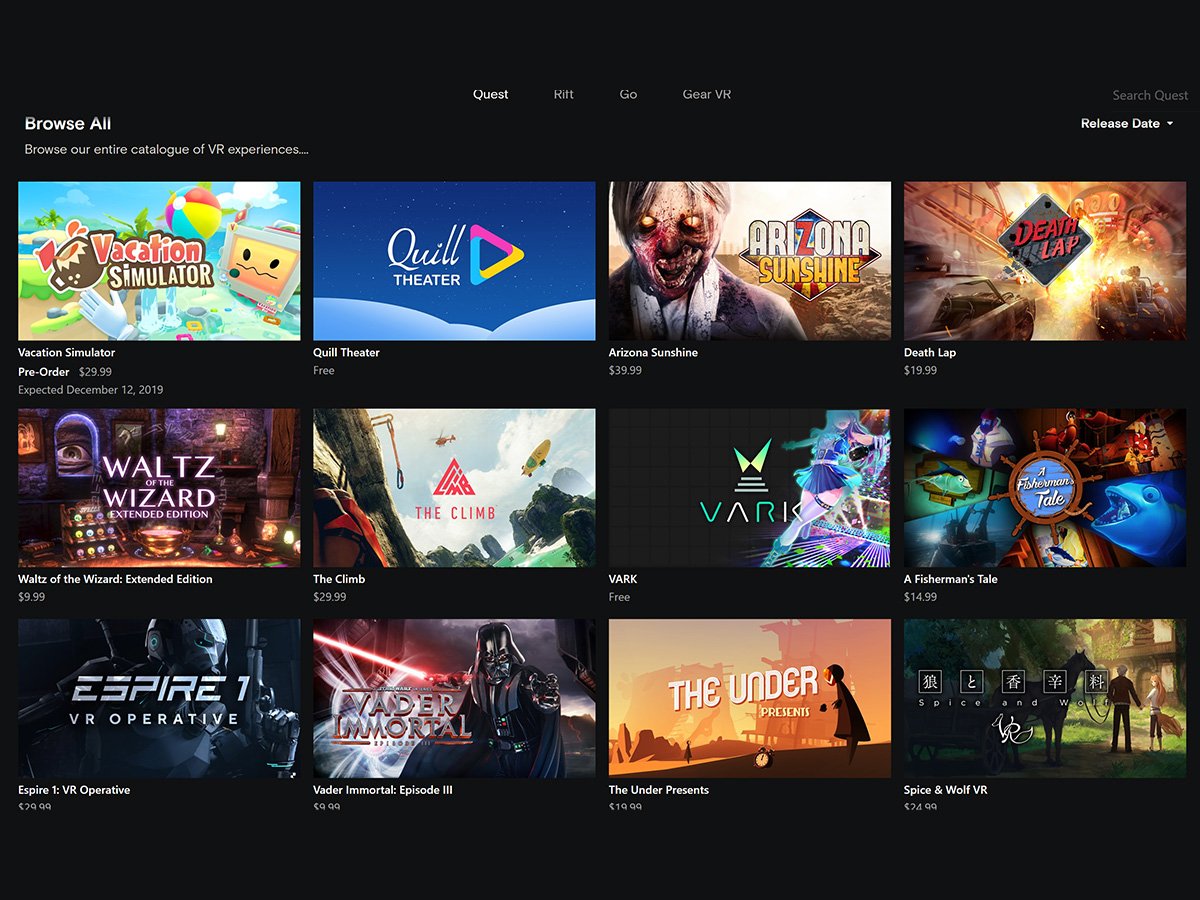

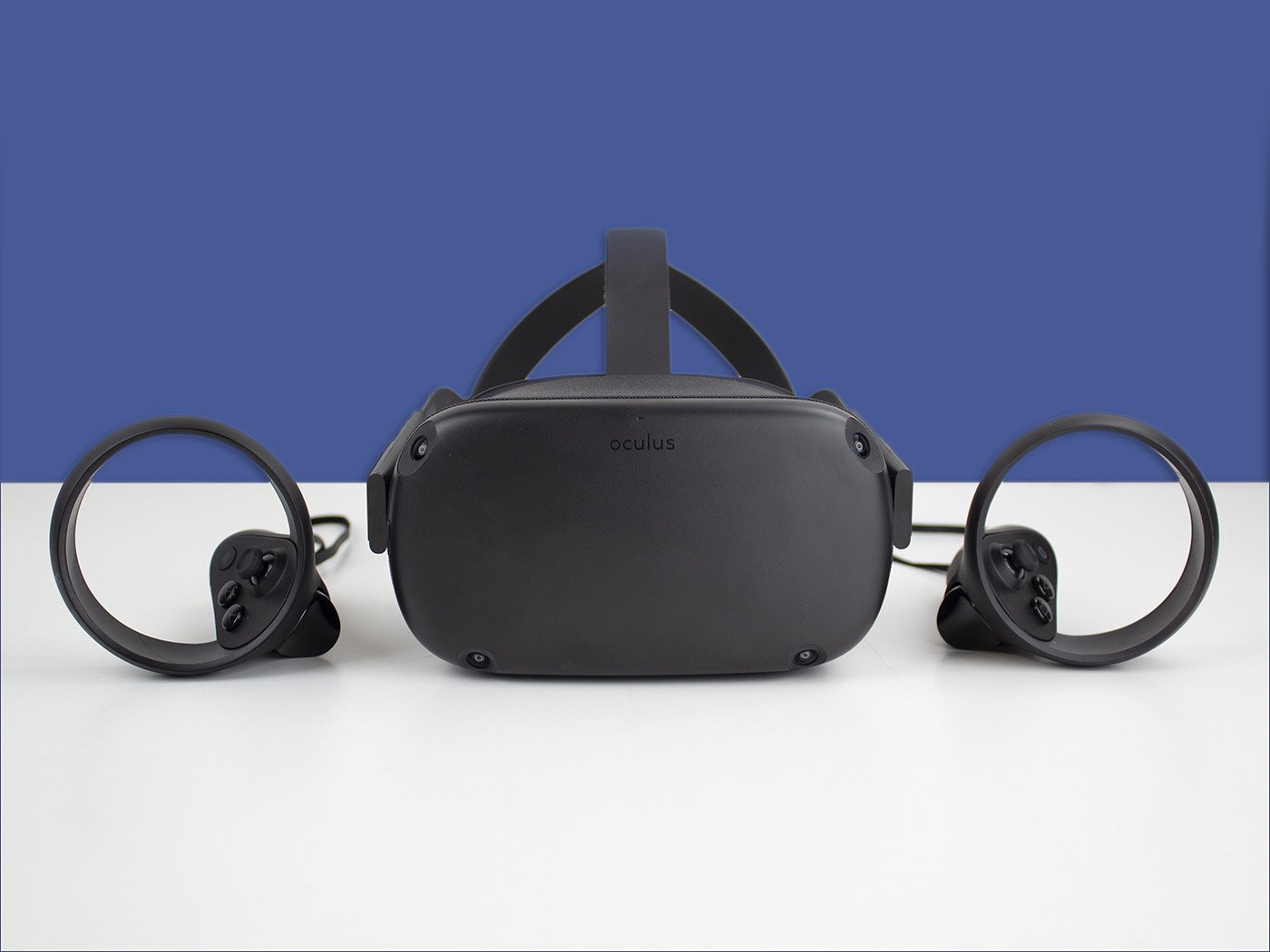
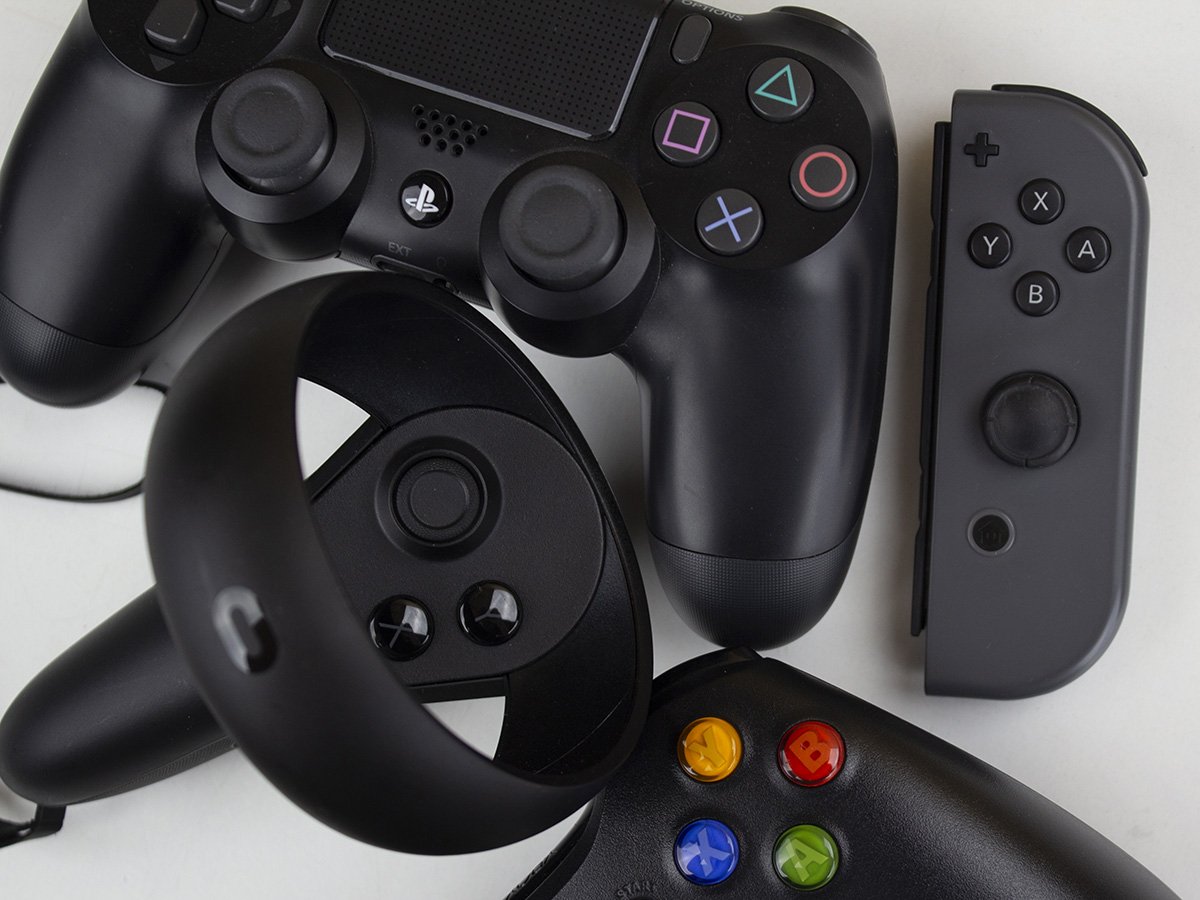
Aucun commentaire: